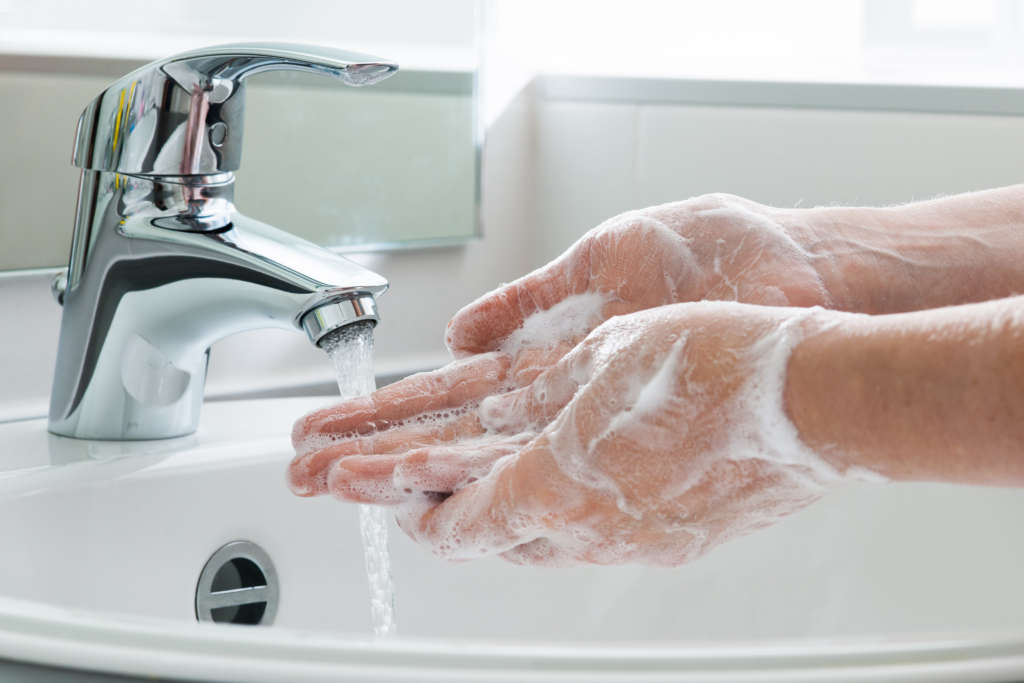A Coronavirus COVID-19 Survival Guide: Healthy Tips for Protecting Yourselfon March 10, 2020 at 4:35 pm
Coronavirus COVID-19 has been on the minds of people around the world for the past few months, and for good reason. While COVID-19 originated in Wuhan, China, in December 2019, it has quickly spread throughout Asia toward the Middle East and into parts of Europe. Now, with over 600 cases confirmed in the United States, and 26 deaths nationwide, we should be more vigilant than ever in case of lasting effects on community health and the economy.
We have seen a lot of misinformation about coronavirus disease COVID-19 floating around the internet as panic sets in, but we’re here to offer some hopefully comforting advice to surviving this potential pandemic. While we can’t say these methods will certainly prevent you from contracting the disease, following these steps may assist in keeping you healthy and safe. But first, a few straightforward facts from the World Health Organization:
The Facts
What is coronavirus COVID-19?
This isn’t the first time we’ve seen a coronavirus strain spread across the globe. Coronavirus can bring about a range of illnesses in animals and humans, primarily causing respiratory infections like the common cold, but also more serious cases of Middle East Respiratory Syndrome (MERS) and Severe Acute Respiratory Syndrome (SARS).
What are the symptoms of coronavirus COVID-19?
Symptoms take anywhere from 2 – 14 days to manifest. A mild fever, fatigue, and a dry cough are the first symptoms to occur, and are sometimes followed by aches and pains, nasal congestion, runny nose, sore throat, and/or diarrhea. As these symptoms gradually increase, those infected with COVID-19 may have trouble breathing and need to be hospitalized. Older individuals are at a higher risk if they have underlying medical issues like high blood pressure, heart problems, or diabetes. Right now, about 1 in every 6 people infected with COVID-19 reach this level of serious illness. Around 80-percent of the infected recover without special treatment.
How can you contract coronavirus COVID-19?
If you have been in contact with someone who has the coronavirus, you are at risk for contracting the disease. COVID-19 is spread through small droplets from the nose or mouth, when someone coughs, sneezes, or even exhales, for example, and nearby healthy people breathe in those particles. These droplets will naturally land on surrounding objects and surfaces, so if you touch these and then touch your mouth, eyes, or nose, you can contract the virus. If you know of someone who is sick with COVID-19, make sure to stay at least 3 feet away from them, or farther, if possible. COVID-19 is not currently airborne, but this may change as the disease spreads worldwide.
Survival Tips
- Wash your hands regularly for at least 20 seconds with soap and water, or with an alcohol-based hand rub, like hand sanitizer, when soap and water isn’t available. Both methods can kill viruses that may be on your hands without you knowing it. To review all the steps to washing your hands, since most of us probably don’t do it correctly every time, Ellen DeGeneres has a few light-hearted tips:
- Avoid touching your eyes, nose, and mouth as much as possible and maintain at least a 3-foot distance from anyone who is coughing or sneezing. This is easier said than done. The Association for Professionals in Infection Control and Epidemiology (APIC) estimated in 2015 that people touch their face roughly 23 times an hour, and while you may think washing your hand and using hand sanitizer will keep you safe, as soon as you start touching thing again, the germs on your hands multiply.
- Speaking of hand sanitizer, turns out we’ve been doing that wrong all along, too. When you use hand sanitizer, make sure to fully rub it into your skin until your hands are dry. And make sure to grab a bottle with at least 60-percent alcohol. Keep in mind that hand sanitizer will not be as effective when your hands are visibly dirty or greasy, and may not remove harmful chemicals, like pesticides and heavy metals, from your hands. Again, use soap and water whenever possible.
- Use your knuckles to press buttons and your sleeves to open doors, whenever possible. This will reduce your chances of spreading germs to your face when you do, inevitably and probably subconsciously, touch it.
- Make sure not to spread your own germs, which means covering your mouth and nose with a bent elbow or tissue when you cough or sneeze. Dispose of the tissue immediately—don’t keep it in your pocket. That’s just gross. And unsanitary.

- If you’re feeling unwell, stay home. While we understand that not everyone has the privilege of taking off work whenever they need to, it’s better that you stay healthy than spread germs to other people around you. If you have a high fever, a persistent cough, and difficulty breathing, seek medical attention. Make sure to call in advance before going, though, so medical professionals can direct you to the correct facility to avoid spreading germs at the doctor’s office. That being said, it’s also not too late to get your flu shot. You’re never too old.
- If you are traveling, make sure to bring hand sanitizer and disinfectant wipes on the plane with you, so you can wipe down armrests and trays, and stay clean as much as possible. If you are traveling overseas, particularly to Europe or Asia, call your airline to see if they have a policy on rebooking, postponing, or even canceling your trip. While that may be a disappointment to you, it’s better to be safe than sorry.
- Face masks are for the sick to avoid spreading germs, not for the healthy. Wearing a face mask as a healthy individual does not decrease your chances of contracting coronavirus COVID-19.
- Turns out people are clearing out Costco, Walmart, Walgreens, Amazon, and more superstores of toilet paper, paper towels, water bottles, and canned goods. It might be time to start thinking about stocking up on non-perishables in case COVID-19 turns into a pandemic with economic consequences. We are still unsure how the world might be affected if the disease continues to spread, but it’s possible prices on certain goods will increase as panic rises.
Final Thoughts
Listen, guys, we know this is starting to get a little scary. We don’t want to tell you the reaction you’re supposed to have to the spread of coronavirus COVID-19, because everyone will deal with this differently, especially if you have any kind of anxiety disorder. What we will say is that you should continue to stay informed by trusted news sources and avoid reading articles that don’t seem legitimate. It might be hard to tell, so we recommend sticking to the World Health Organization, which is working around the clock to ensure all information is as up-to-date as possible. On a final note: the coronavirus COVID-19 does not give you or anyone a reason to be xenophobic or racist when in contact with other human beings. We are all in this together.


























lesraff
January 17, 2020 at 12:00 am